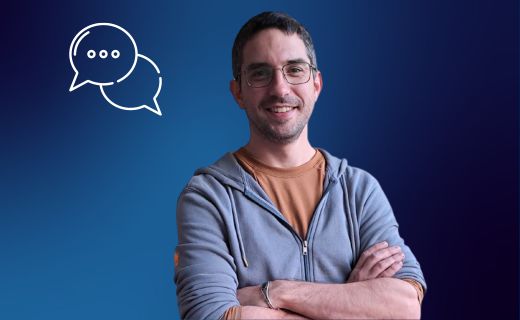


Meet Mylinda, In vitro Study & research technician at Oncodesign Services
- Describe to us briefly your professional journey and the reasons that led you to pursue this path
Passionate about science since my childhood, I’ve always had a keen interest in experimentation. Even at a young age, I enjoyed mixing shampoos in the bathroom and observing their reactions with curiosity 😊 Understanding the workings of the phenomena and mechanisms around us has always been a source of fascination for me.
My educational journey took place at the Pierre-Gilles de Gennes High School (ENCPB), a renowned institution for its teaching in chemistry, physics, and biology. It was there, since my sophomore year, that I was drawn to the field of biotechnology and laboratory work, combining theoretical knowledge with practical application. This fusion of intellectual reflection and practical experimentation continues to fuel my passion to this day.
After obtaining my BTS in bioanalysis and controls, I entered the professional world at Bertin Pharma, a company that was acquired by Oncodesign (ODS) in 2017.

- What does your job entail at Oncodesign Services, and what are your daily tasks?
For five years at ODS, I was responsible for the “Biological Resources Center (BRC)” platform within the “IDMIT” institute in partnership with the CEA. This platform aims at developing therapeutic treatments against infectious pathologies by collecting and preserving biological samples from animals such as fluids and cells. This work required a solid grasp of safety standards, sample management, and the transport of biological products.
In 2020, I joined the in vitro team in Paris-Les Ulis as a study and research technician. I quickly gained specialized expertise in the technique of flow cytometry.
My daily routine involves drafting analysis protocols upon study validation. This includes detailed steps writing, managing orders, planning studies with the study director, as well as the technical execution of experiments. Then, I proceed with result analysis and drawing conclusions.
I perform a variety of different techniques: cellular cytotoxicity, metabolic assays, internalization assays in imaging, ELISPOT, ELISA, qPCR: Gene expression, flow cytometry (ADCC/ADCP/cell cycle/internalization by pHAb/Kd determination, Ex vivo assays (e.g., quantification of immune infiltrate within tumors), etc.
Although I don’t have direct contact with clients at this point, I closely collaborate with study directors who act as intermediaries.
What is flow cytometry?
Flow cytometry is a widely used technique in biomedical research, notably for studying the immune system, characterizing stem cells, and analyzing diseases such as cancer. It allows simultaneous study of multiple parameters, such as cell size, shape, complexity, and intracellular content like DNA, proteins, and fluorescent molecules. This technique relies on cells passing one by one in front of a laser beam, generating precise and detailed data on each analyzed cell.
- How is the in vitro department organized at Oncodesign Services?
In Paris, our teams are versatile and handle in vitro projects from A to Z. Each of us has our own specialties, requiring constant communication and sharing of advice.
We conduct a variety of analyses using different readouts, including:
- Cellular cytotoxicity
- Biochemical and cellular functional assays (including the use of radioisotopes)
- Phenotypic screening
- Metabolic assays, including proliferation assays
- Mechanistic assays: apoptosis, cell cycle, migration, invasion…
- Clonogenic assays
- Radiotherapeutic assays
- Ex vivo assays
Regarding therapeutic domains, no specificity is attributed in vitro. Only infectious diseases require specific sanitary conditions and accreditations.
Following the results of a project, additional analyses can be performed to confirm a target of interest. Subsequently, in vivo analyses can be set up to further the development of the new drug.
- What are the important qualities for someone in your profession?
I would say first, Perseverance. Additionally, the technician’s job requires being versatile, meticulous, and curious. We are far from just being “executors”.
- If you were… a motto
“Science is 90% failure, 10% success, and that’s a good day!”
- Why would you recommend joining Oncodesign Services?
Working within a contract research organization (CRO), we are often limited in our product knowledge and understanding of development project objectives. However, we benefit from the advantage of collaborating on many different projects and having access to an extensive and advanced range of technical platforms.


